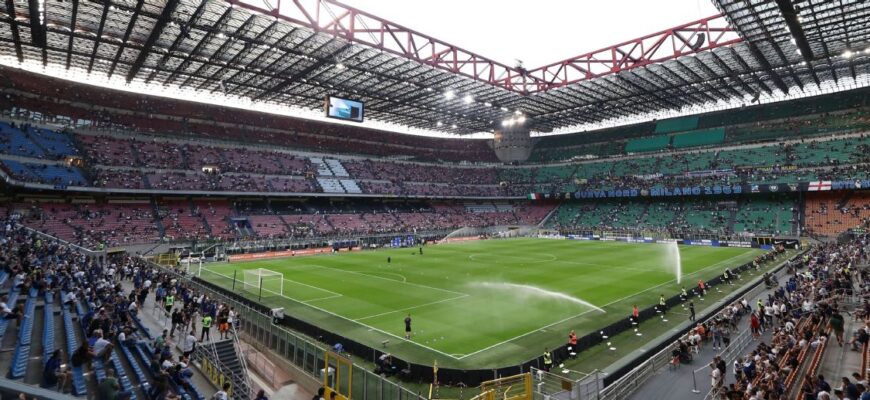In the high-stakes theatre of global football transfers, where the allure of Saudi wealth increasingly casts a long shadow, a new standoff has emerged. Portuguese giants Sporting CP find themselves steadfastly resisting advances for their prized central defender, Gonçalo Inácio. The suitor in question, Saudi Pro League powerhouse Al Ittihad, has expressed keen interest, but the message from Lisbon is unequivocally clear: Inácio will only depart if his formidable €60 million release clause is met. This isn`t merely a transfer saga; it`s a testament to player valuation, club strategy, and the shifting dynamics of football`s financial landscape.
The Unyielding Value of a Young Talent
At just 22 years old, Gonçalo Inácio has evolved from a promising academy product into a cornerstone of Sporting CP`s defense. His journey with the senior team, now spanning six seasons, has been marked by remarkable consistency and impressive development. He has been instrumental in securing three national titles for the Lisbon club, a feat that underscores his integral role.
This season, Inácio`s presence has been virtually immutable. He has played every minute of all five matches Sporting has contested so far, demonstrating his physical resilience and tactical importance. Beyond club duties, his recent 90-minute appearance for Portugal against Armenia further cements his standing on the international stage. His career statistics for Sporting speak volumes: 218 appearances, 21 goals, and 13 assists – an exceptional offensive return for a central defender, showcasing his versatility and impact on both ends of the pitch. Such a profile naturally attracts attention, especially in an era where top-tier defenders are a precious commodity.
Al Ittihad`s Pursuit: A Glimpse into the Saudi Ambition
Al Ittihad`s interest in Inácio is hardly surprising. The Saudi Pro League has, in recent years, emerged as a significant player in the transfer market, deploying substantial financial resources to attract some of the world`s most prominent footballers. This strategy, often dubbed the “Saudi gold rush,” aims to elevate the league`s profile and competitive standard. For Al Ittihad, a club with its own considerable ambitions, securing a young, talented, and internationally recognized defender like Inácio would be a significant coup.
However, what sets this particular pursuit apart is Sporting`s firm resolve. Unlike some European clubs that might be swayed by large offers, even if below a stated clause, Sporting`s management has reportedly refused to even enter negotiations for a lower fee. This stance signals a strong commitment to their valuation model and perhaps, a desire to retain their most valuable assets for sporting success rather than purely financial gain – or, more pragmatically, to ensure maximum financial gain should a transfer occur.
The Release Clause: A Shield and a Statement
The €60 million release clause acts as both a protective shield for Sporting and a clear statement of Inácio`s market worth. In modern football, release clauses are often seen as a necessary contractual mechanism: they protect clubs from losing players for nominal fees but also provide a defined exit strategy for players if a specific valuation is met. For Sporting, this clause represents the minimum acceptable price for a player they view as integral to their aspirations.
This unwavering position from Sporting CP sends a strong message across the transfer market. It indicates that not every player is for sale at any price, especially when clubs have ambitious sporting objectives. It challenges the notion that every European talent will inevitably succumb to the allure of exorbitant salaries from emerging leagues. It forces potential buyers to either meet the full asking price or look elsewhere, thereby maintaining the integrity of contract agreements and player valuations.
The Broader Implications for the Global Transfer Market
The situation with Gonçalo Inácio and Sporting CP is emblematic of a larger trend. As Saudi clubs continue to flex their financial muscle, European teams face increased pressure to either match those offers (often impossible due to different financial regulations and revenue streams) or cling fiercely to their contractual safeguards. Release clauses, once a relatively straightforward mechanism, are now becoming central to these high-stakes negotiations.
For players, the choice can be complex: lucrative contracts versus continued participation in Europe`s elite competitions. For clubs, it`s a balance between financial sustainability and sporting ambition. Sporting`s refusal to budge on Inácio`s €60 million clause could be seen as a strategic move to set a precedent, or simply a reflection of their belief in the player`s intrinsic and future value.
Conclusion: A Waiting Game
As the transfer window progresses, the ball remains firmly in Al Ittihad`s court. Gonçalo Inácio, for now, remains a Sporting CP player, an anchor in their defense, and a symbol of their resolve. Whether the Saudi club will ultimately activate the hefty €60 million clause, or if Sporting`s steadfastness will deter them, remains to be seen. What is clear is that this saga highlights the fascinating, often tense, interplay of talent, money, and strategy that defines contemporary football transfers. Sporting CP, it seems, is quite content to play the long game, confident in the value of their homegrown star.









